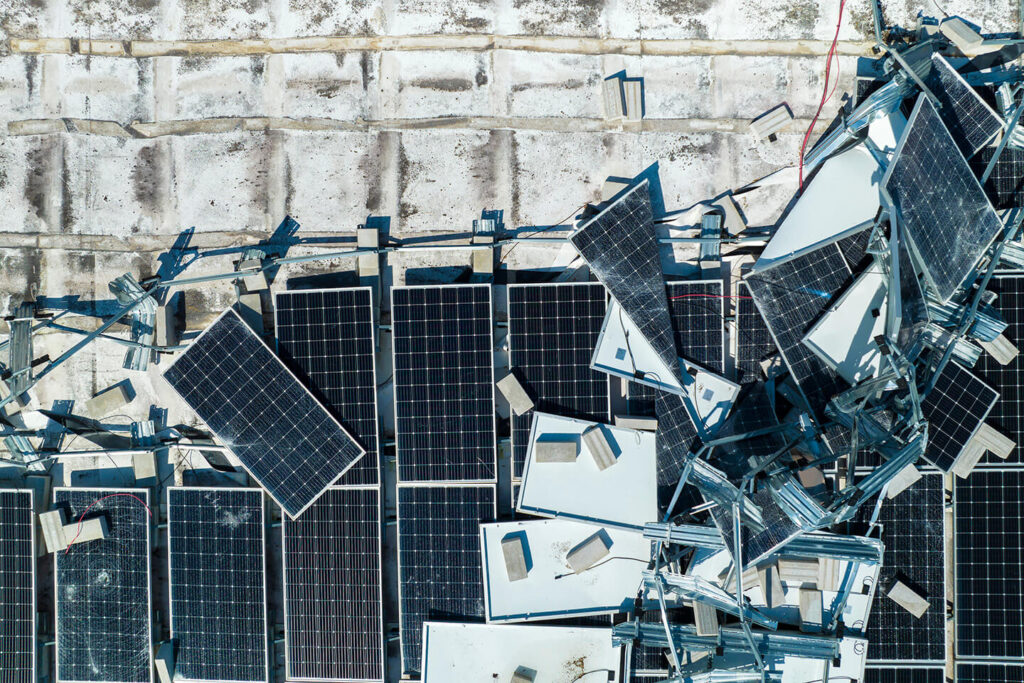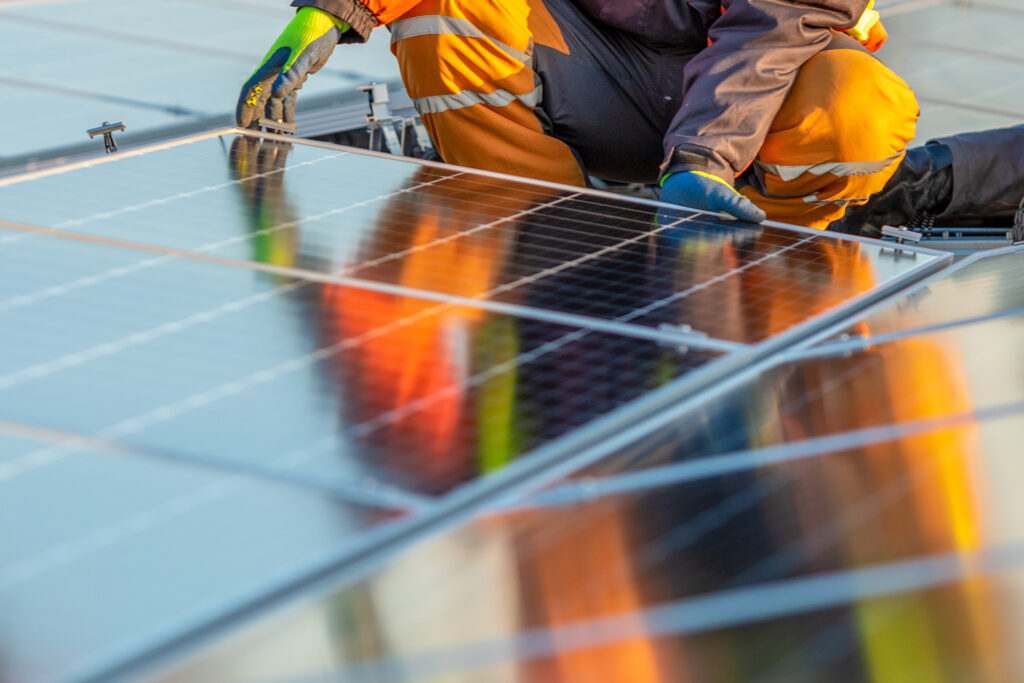Turning the Spotlight on Sweden: Pioneering Circular Solutions for Solar Panels
2024.03.27

Swedish business actors are joining forces to develop a concrete proposal on how a national infrastructure for circular management of solar panels can function in practice. Photo: iStock
Pressrelease 27-03-24: As solar energy emerges as the world’s leading energy source by 2027, many countries, including Sweden, face a pressing challenge: the absence of a robust infrastructure for upgrading, repairing, or recycling solar panels. A recent government investigation underscores the looming threat of substantial solar panel waste in the years ahead. However, the Swedish business community, in collaboration with researchers at KTH Royal Institute of Technology, initiated the CircSolar project, pioneering concrete solutions to address this critical issue.
The lifespan of a solar panel is approximately 30 years. Today, there are few solar panels ready for recycling, but in 15-20 years, the quantities will be substantial. The CircSolar project, driven by Axfoundation and initiated by solar energy company Svea Solar, brings together the entire value chain to develop a concrete proposal on how a national infrastructure for circular management of solar panels can function in practice. The proposed solution will include business models, incentive structures, and policy proposals needed to support a circular development for solar panels.
Given the significant growth and interest in solar energy, it is important to think about the next step, what will happen in the future when many solar panels have reached end-of-life. We initiated this project as we see a big opportunity for the entire solar industry to become circular.
– Malin Cronqvist, Head of Sustainability at Svea Solar

Within five years, solar energy is expected to account for 22% of global power capacity, up from less than 1% in 2010. Photo: iStock
A solar panel consists of glass, plastic, aluminum, silicon, silver, copper, and lead. Components that can be recycled, yet very little is currently being recycled. The Swedish Energy Agency’s investigation on this matter was submitted to the government on March 26th, representing an important first step in assessing the situation and necessary actions.
It is positive that the government has already recognized the need for more responsible management of solar panels. This requires action from policymakers with clear regulations and a clear producer responsibility to create conditions for companies to prepare, and invest in new technology, new business models, and new processes.
– Johanna Olofsson Behrman, leading the CircSolar project and project manager within Future Materials at Axfoundation.
What we do in CircSolar is to develop a proposal for a national solution that benefits the entire system and is based on the latest research from KTH Royal Institute of Technology. Creating systemic change requires us to include multiple perspectives, such as infrastructure, technology, business models, and policy, but also to involve a variety of stakeholders. This is not something that either politics or a single actor can solve alone; it requires broad collaboration.
– Johanna Olofsson Behrman, Project Manager, CircSolar, Axfoundation
The project brings together researchers and practitioners to explore the possibilities of a circular system for solar panels that ensures compliance with future legal requirements, secures access to critical recycled materials, reduces the use of natural resources, and enhances the competitiveness of Swedish and European solar energy.
Solar Energy and Solar Panel Facts
- The amount of solar panel waste is estimated to reach 200 million tons globally by 2050 if action is not taken now (IRENA).
- Solar energy is expected to become the largest energy source globally by 2027 and is an important contribution to a long-term sustainable energy system (IEA).
- Within five years, solar energy is expected to account for 22% of global power capacity, up from less than 1% in 2010 (IEA).
- In Sweden, 55,000 new grid-connected solar panel installations were installed in 2022. The number is expected to double in 2023 (Swedish Solar Energy).
- The lifespan of solar panels is estimated to be approximately 30 years (Svea Solar).
- Solar panels consist of 70% glass, 15% aluminum, 10% plastic, 4% silicon (silicon), 1% other metals (e.g., copper, silver, lead) (IEA).
- In theory, virtually all materials in a solar panel can be recycled, but this type of recycling is not financially viable today (PV Cycle).
About CircSolar
The project was initiated by Svea Solar and is driven by Axfoundation. Key actors include El-kretsen, KTH Royal Institute of Technology, REMONDIS, and Stena Recycling. The reference group includes AxSol, INGKA Group (IKEA), SolTech Energy, The Sunshine Fund and the Swedish Solar Energy Association.
The project is open to additional actors who wish to participate to create conditions for collaboration and systemic change. The work is supported by Vinnova.
More information is available on CircSolar’s project page.
Contact
- Linda Andersson, Director of Communications, Axfoundation,, +46 (0)73 – 087 15 70
- Johanna Olofsson Behrman, Project Manager CircSolar, Axfoundation, , +46 (0)730 – 60 08 72
- Lisa Erkander, Communications Lead, Svea Solar, , +46 (0)730 – 27 37 48
- Malin Cronqvist, Head of Sustainability, Svea Solar, , +46 (0)70 – 408 74 74
















































